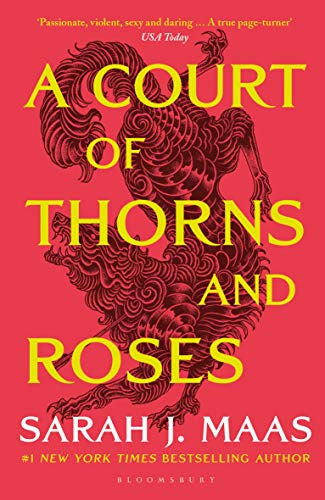Entering the Second Half of 2023; the Attack on Libraries and our Freedom to Read; the Irrelevance of Generative A.I.; Recommended Titles
My take on writing, reading, media, and other interests.

Each month I sit down and evaluate how I’m doing on my goals. It’s a positive process that celebrates what I’ve accomplished, recognizing any challenges faced, and provides an opportunity to plan for the month ahead.
If you think that eyeball acupuncture sounds more fun—you’re probably not alone.
I enjoy the process and have fun with it. I also track how many words I write, how much time I spend on writing and other creative activities, track streaks, and visualize all of that data. My critical brain thrives on all of that stuff and so it leaves my creative side alone to pretend, play, and have a blast making shit up, drawing pictures, and publishing books, stories, and other content.
I’m in a pretty good place coming into Q3. In the first quarter I wrote several short stories, and finished writing a novel. In Q2, a wrote a couple short stories after I finished the last novel, then jumped into my current novel. It has been my primary focus for the past few months. So much so, that I haven’t always made time for my other creative activities. That’s perfectly alright. I’ve had other things on my mind, including health concerns that have—thankfully—turned out just fine.
Power of Streaks
One thing my evaluations made clear, especially after June, is the power of streaks. Actually tracking how many days or weeks I’ve achieved a goal. The calendar shows that when it comes to my fiction writing. I write every day—when I track streaks. Once you’ve done something every day for a period of time, it’s hard to let go of that and break the streak.
Though I’ve given myself reasonable amounts of time for other creative activities—artwork, publishing, videos, and the like—I haven’t been tracking my streaks with those activities. And I’ve found that I wasn’t spending as much time on the activities I find more meaningful. Odd, but clearly not uncommon! Why is it we put off things that we profess we want to do? Instead we end up watching yet another video, playing a game, browsing social media—all fine things to do—but not what we said we wanted to do!
For me, having a system to track my progress and tracking my streaks, helps break down that wall. I’ve seen it with my writing, but I hadn’t applied it to the other activities until now. Some of the streaks are daily, others require a certain number of days each week to count a week.
More important is an attitude shift: have fun and zero expectations.
That’s not the attitude we expect from someone considered a “professional.” Yet I think it’s a great attitude to cultivate. Why take something you love and turn it into work? Have fun with it so it is the thing that you turn to when you want a break. Got fifteen minutes, can you use that time to do what you love? Have zero expectations of what you’re doing. Enjoy the activity. Don’t put the pressure of everything on it. If you do, how long until you burn out? Instead have fun, and then if you want to, share what your imagination created. Chances are, if you had fun and loved doing it, other people will enjoy it as well. And if they don’t, so what? You still had a great time.
Freedom Under Attack
Fundamental freedoms have come under attack as groups like Moms Against Liberty (I know that’s not what they call themselves, but it is more accurate) strive to control what you can read. Resources to check out:
I’ve worked in libraries for many decades. I’ve listened to many people with concerns about a book, movie, or other material in the library. I’m happy to listen and happy to help them find something more to their liking. Often that’s enough and they’ve left satisfied because I’ve listened and did my best to help them. That’s great.
Most understood that they get to decide what they (or their children) read, but not what other people read. It’s that simple. I don’t want someone else deciding what I read, or what my son can read. If a parent has concerns about what their kid is reading, that’s between them. I’m not getting in the middle of it. Groups like Moms Against Liberty want to take away the rights of children and their parents. Like so many of these groups what they claim is the opposite of what they’re doing. They claim they want to “unify, educate, and empower parents to defend and protect their parental rights at every level of government.” Except they want to violate parental rights, the rights of young people, and criminalize librarians for doing their work. There’s nothing unifying in a group opposed to equal rights and freedom. If they actually wanted to protect rights, to educate, then they would endorse the ethics of the library profession and intellectual freedom.
Artificially Irrelevant (A.I.)—Generative Models
I get it. It’s pretty cool to be able to type in a simple prompt and get back an image, article, video, or music. If it isn’t quite right, you can update the prompt and get a revised version of the result. You could do the same thing with a person, of course, but chances are they’ll take a lot longer to produce what you wanted and they’re unlikely to do it for free. If A.I. can do it in a fraction of the time, at almost no cost, and come up with a result that is good enough, why turn it down?
It’s pretty clear that a great many people and businesses aren’t going to turn it down. They’re not concerned about how the models were trained, if it is fair use or not. Some are caught up in the algorithmic churn of creating more content faster than ever and see A.I. as a tool to help them do that. Writers want artwork for a Kickstarter campaign, a cover, and find it easier and cheaper to get what they want from A.I. In the indie space many of them don’t care that much about the artwork as long as it does the job of selling their book. And if they can use A.I. to write the book even faster, producing more books, they think why not? Let A.I. outline, produce a first draft, edit the book, and create the cover art. Plus A.I. tools can produce their social media posts and videos, customizing them for Tik Tok, Twitter, Threads, and those that don’t start with the letter ‘T’. They may or may not disclose how A.I. was used to create their books. And readers may not care.
I’ve written about this before, referencing Clifford D. Simak’s “yarner.”
Back in 1955, Simak wrote, “With a machine such as that, Hart told himself, a man could become famous almost automatically and virtually overnight.”
That’s the same motivation behind today’s A.I. craze. Like in his story, the vision behind A.I. is the ‘content creator’ as conductor of A.I. tools who then takes credit for the outcome. Except it’s more the case that we’re the wetware to fill in the gap in the A.I.’s capability to generate ideas.
Yet the same technology will soon be able to fill that gap too, generating ideas as fast as anything else. A.I. talking to A.I. talking to A.I. without human wetware in the loop, analyzing all of the reactions and results to produce better material, the tools evolving geometrically to get better performance.
It’s a ouroboros, a cultural fire endlessly consuming itself, limited only by the available energy and the appetites of content consumers.
As destructive as it is, it’s also irrelevant. To me. Those facing declining income and a lack of social nets won’t find it irrelevant. I find it irrelevant because it doesn’t change what I choose to create. I’m not interested in A.I. creations. I am a techy guy, and I think the capability of these models is fascinating, but I don’t want it as a writing partner. I’m not interested, thank you.
Yet there are uses for A.I. that I find worthwhile. Adding alternate text to images to improve accessibility. Speech-to-text, text-to-speech, translation, automatic kerning, image upscaling, diagnostics, identification of signals in noise, and many similar uses are all things I think A.I. can do well, and it’ll get better.
Check out Ben Palmer’s quest to become artificial intelligence.
Books You Might Want to Read
Gender Queer: A Memoir by Maia Kobabe
If you’re at all like most people trying to ban this book, you haven’t read it. I hadn’t until recently and probably wouldn’t have ever noticed it except for the insane attempts to ban the book.
Maia Kobabe wrote a deeply personal and moving account of eir experiences growing up. Many of eir experiences are instantly relatable for most humans. Crushes, changing bodies as we grow, and the fears around being seen are common experiences for most humans. And those that differ from my experience provide insight into another human being’s experience. I’m encouraged that 84% of ratings on Goodreads are 4+ stars.
A Court of Thorns and Roses by Sarah J. Maas
Yep, another book (along with other books by the author) frequently showing up on banned book lists. Except this one is fantasy—one of my favorite genres. Sarah J. Maas’ books have been on my TBR list for a long time, thanks to the obvious popularity. Much like Brandon Sanderson (no, I haven’t read them yet) or Robert Jordan (I know), and many other authors. So many books, so little time. The
Unsurprisingly? It’s pretty great. I enjoyed reading it. Sure, there are familiar elements at play in the story. I didn’t have to get far before the Beauty and the Beast trope showed itself. Fine, doesn’t bother me at all.
Folks wanting to ban this book, the series, etc., haven’t read much of anything if these books upset them. There’s a simple response for books you don’t enjoy—close them and don’t finish reading them. I don’t even bother to post negative reviews, because what’s the point? If I didn’t like a book, I’m not going to waste more time on it.
We’ve reached the end of this issue of READINARY. If you stuck with it this far—thank you! If you’re interested in showing more support for my work, consider becoming a paid subscriber, or hop over to my shop and pick up copies of my books. If you use the links to pick up the books I share here, I also earn a small affiliate commission (for some of them) at no cost to you.
If you want. No problem if you don’t. I appreciate you reading this issue. I’ll likely be back in a couple weeks with another issue.
Best wishes, always—Ryan







